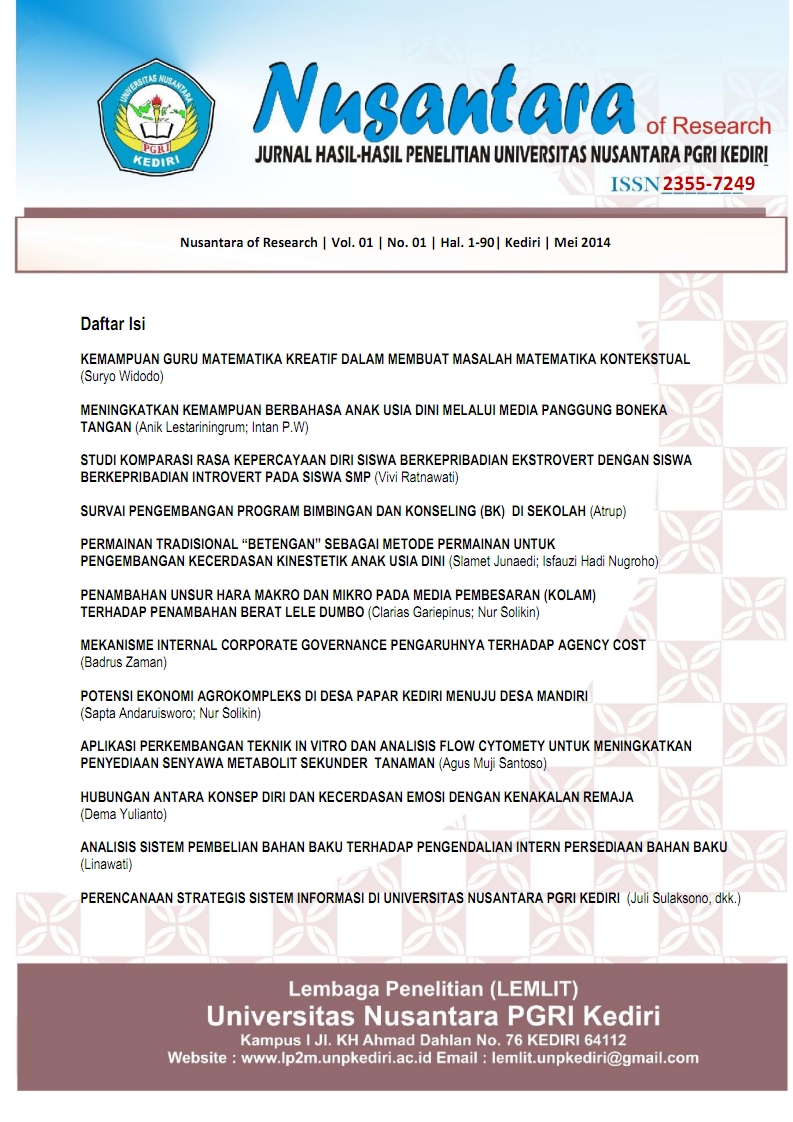APLIKASI PERKEMBANGAN TEKNIK IN VITRO DAN ANALISIS FLOW CYTOMETY UNTUK MENINGKATKAN PENYEDIAAN SENYAWA METABOLIT SEKUNDER TANAMAN
Main Article Content
Abstract
Today’s, higher population cause the human necessary not only at basic food but also at medical compounds has increased too (quality and quantity). The bad impact of modern therapy cause the society should look for the alternative therapy specifically using medical compounds from tropical plants as well as can be found in their environment. Providing medical compounds by tropical plant by conventional methods were inefficient, such us the limitation of reproduction ability plant (by vegetative or generative), were dependent to host plant (medical plant parasite), most of medical plants belonging to rare plant, and the fluctuation of concentration medical compounds will be crucial problem to fulfill their necessary. Based on previous study showed that the improvement of plant tissue culture technique included of the invention and growth plant substances application were able to solve the providing callus as source of medical compounds. However, the higher rate of variation genetic callus caused the variation of medical compounds profile. Biology molecular technology such us flow cytometric and RAPD have great potential to monitor of callus profile, for examples DNA profile or stage of callus cells. Finally, the providing of medical compounds can be filled not only by quality and quantity.
Downloads
Article Details
Issue
Section
Authors who publish with this journal agree to the following terms:
- Copyright on any article is retained by the author(s).
- The author grants the journal, the right of first publication with the work simultaneously licensed under a Creative Commons Attribution License that allows others to share the work with an acknowledgment of the work’s authorship and initial publication in this journal.
- Authors are able to enter into separate, additional contractual arrangements for the non-exclusive distribution of the journal’s published version of the work (e.g., post it to an institutional repository or publish it in a book), with an acknowledgment of its initial publication in this journal.
- Authors are permitted and encouraged to post their work online (e.g., in institutional repositories or on their website) prior to and during the submission process, as it can lead to productive exchanges, as well as earlier and greater citation of published work.
- The article and any associated published material is distributed under the Creative Commons Attribution-ShareAlike 4.0 International License




